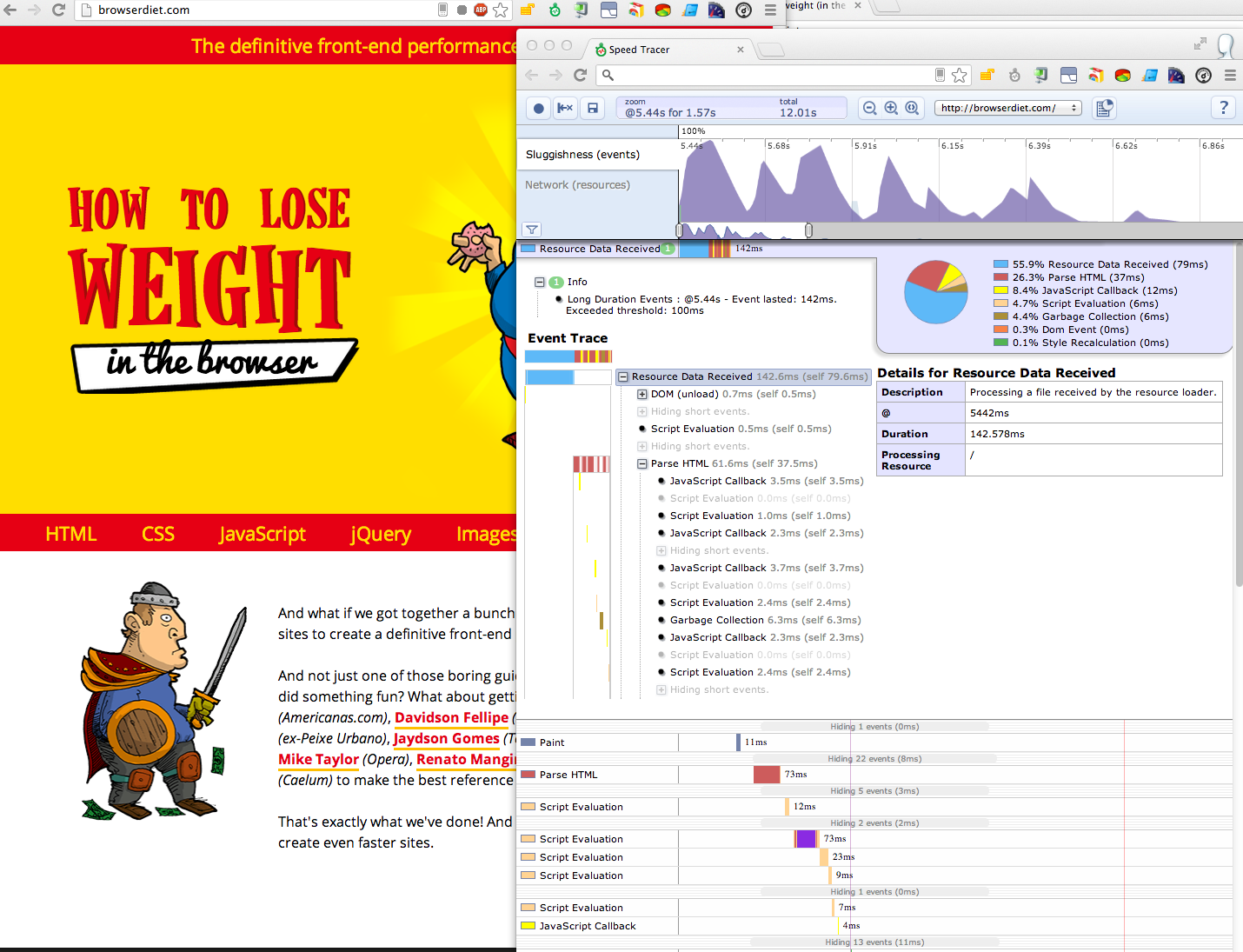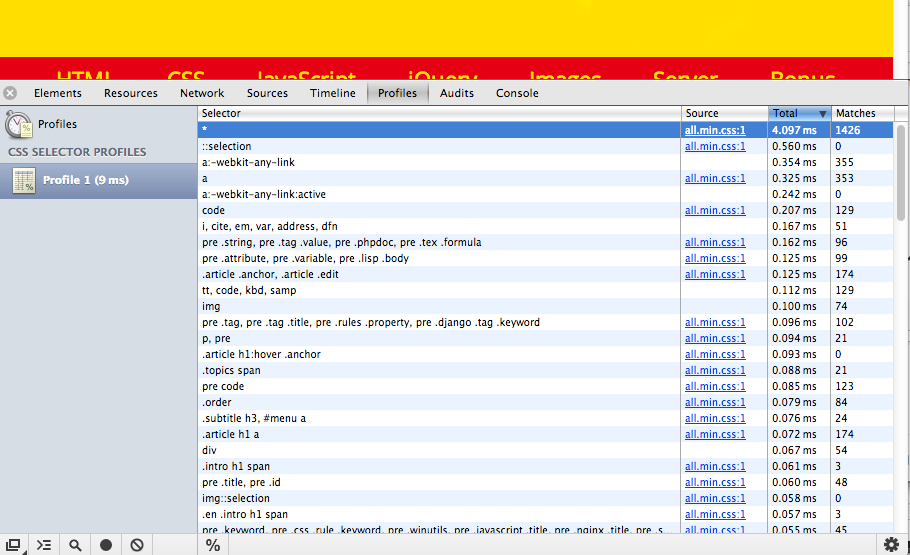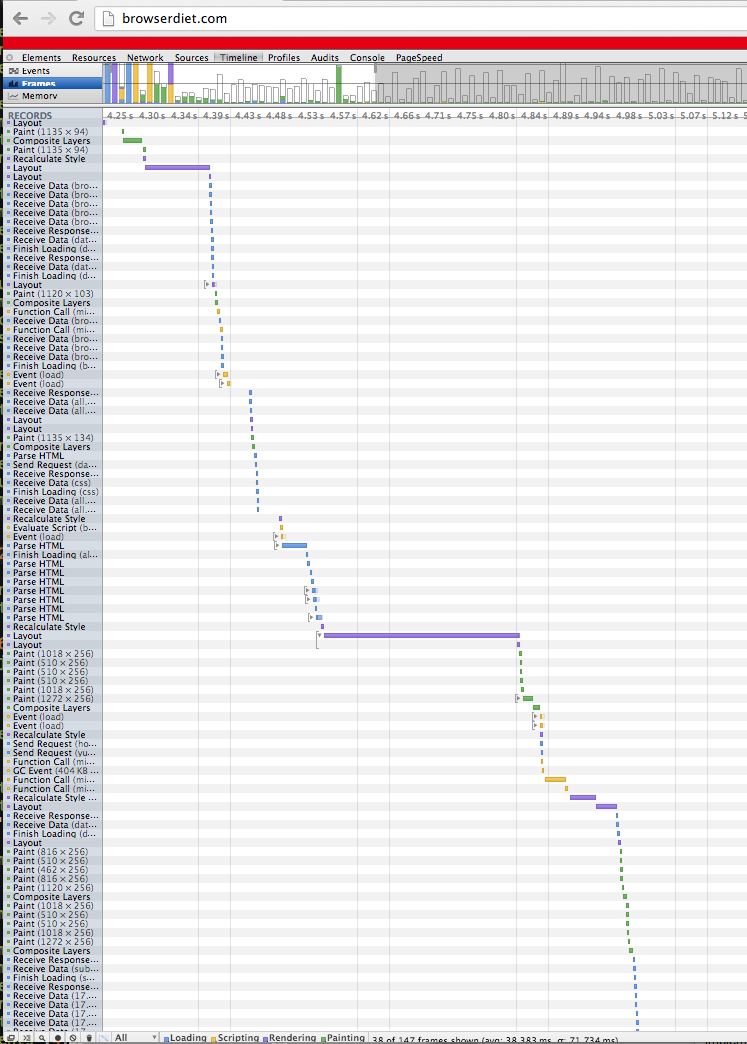I use the star selector all the time for my resets (to define a global margin, padding, font-size and box-sizing). I have no problem using it, as long as its use is as simple as this.
The main problem with the star selector is abusing it as the key selector in more complex situations — like "header " or "#main article ". This is slow.
And maybe we should make it clear that the rules will apply only when you abuse the antipatterns. I mean, using one single star selector (even if it was very slow) is not a problem (like using .length in one single JS loop, etc). The problem is the abuse.
About the star selector section, I don't think we should remove the rule entirely but maybe merge it with the key selector section and explain its main problem.



As pointed by @jonathantneal:
I started researching more about it and I found some opinions:
Max Howell:
Also this KendoUI article says that Star Selector Not That Bad.
So what do you guys think about it? Should we remove this tip?
/cc @davidsonfellipe @marcelduran @miketaylr @jaydson @sergiolopes @keppelen @mangini